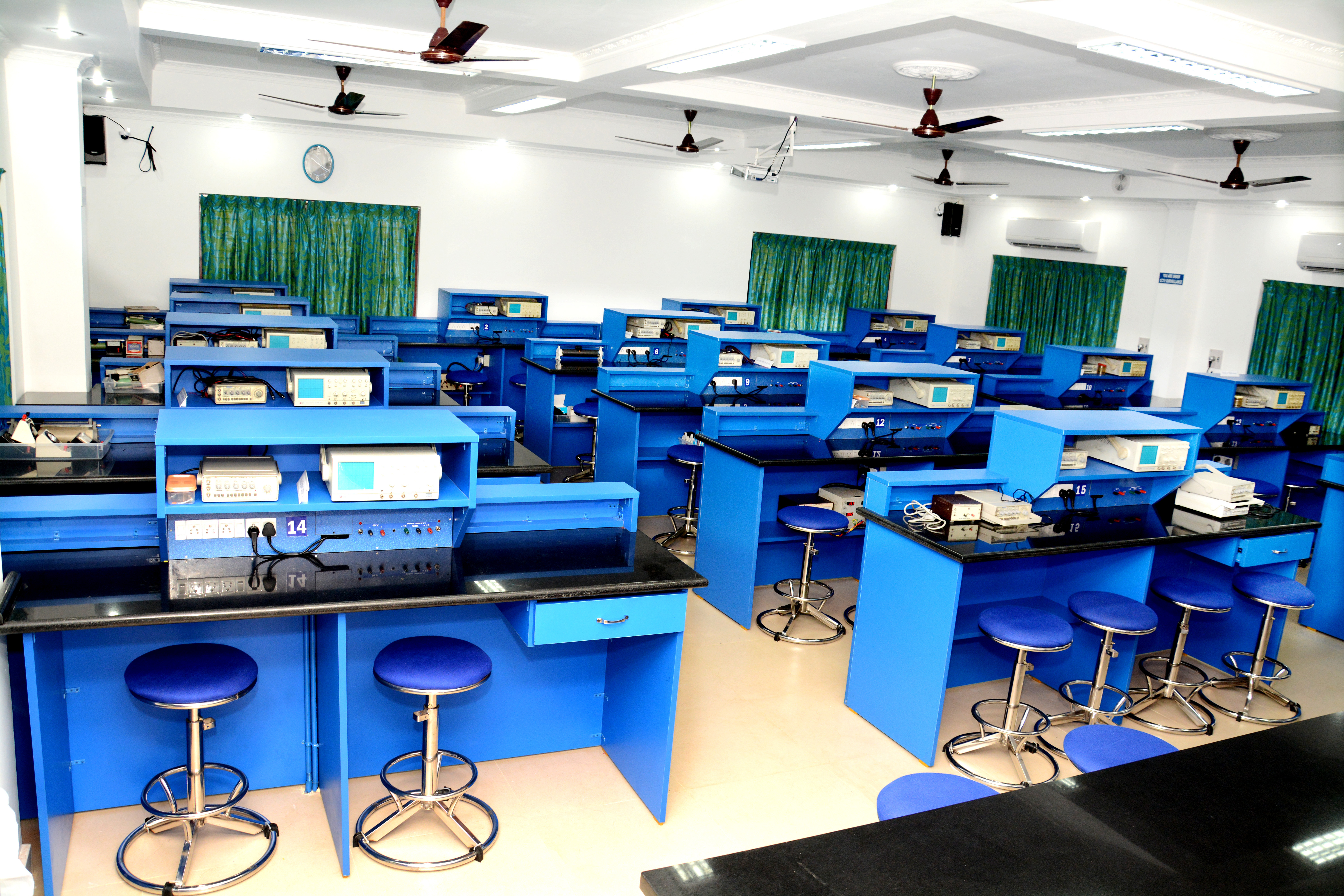
Aims
A curriculum, course content and assessment of scholastic achievement play complementary roles in shaping education. assessment should support and encourage the broad instructional goals such as basic knowledge of the discipline of Electronics including phenomenology, theories and techniques, concepts and general principles. This should also support the ability to ask physical questions and to obtain solutions to physical questions by use of qualitative and quantitative reasoning and by experimental investigation. The important student attributes including appreciation of the physical world and the discipline of Electronics, curiosity, creativity and reasoned skepticism and understanding links of Electronics to other disciplines and to societal issues should gave encouragement. With this in mind, we aim to provide a firm foundation in every aspect of Electronics and to explain a broad spectrum of modern trends in Electronics and to develop experimental, computational and mathematics skills of students.
Objectives :
The main objectives of the B.Sc. Electronics programs are
PROGRAMME OUTCOME
A curriculum, course content and assessment of scholastic achievement play complementary roles in shaping education. This programme should support and encourage the broad instructional goals such as basic knowledge of the discipline of Electronics including phenomenology, theories and techniques, concepts and general principles. This should also support the ability to ask physical questions and to obtain solutions to physical questions by use of qualitative and quantitative reasoning and by experimental investigation. The important student attributes including appreciation of the physical world and the discipline of Electronics, curiosity, creativity and reasoned scepticism and understanding links of Electronics to other disciplines and to societal issues should gave encouragement. With this in mind, this aim to provide a firm foundation in every aspect of Electronics and to explain a broad spectrum of modern trends in Electronics and to develop experimental, computational and mathematics skills of students.
The programme also aims to develop the following abilities:
1.Read, understand and interpret physical information – verbal, mathematical and graphical.
2.Impart skills required to gather information from resources and use them.
3. To give need-based education in physics of the highest quality at the undergraduate level.
4.Offer courses to the choice of the students.
5. Perform experiments and interpret the results of observation, including making an assessment of experimental uncertainties.
6. Provide an intellectually stimulating environment to develop skills and enthusiasms of students to the best of their potential.
7. Use Information Communication Technology to gather knowledge at will.
8. Attract outstanding students from all backgrounds.
PROGRAM SPECIFIC OUTCOME
This programme provides a strong foundation for developing skills in electronic circuit designing, software development, assembling, troubleshooting and maintenance of computers. The programme is designed with the objective to equip students to pursue careers in Electronics, IT and Computer Hardware related fields or to go in for higher studies in the related disciplines. This is a vocational programme that prepares students to start an enterprise of their own.
The main outcomes are:
Duration Of The Programme
The duration of U.G. programmes shall be 6 semesters ( 3 years ).
Eligibility:
Candidates shall be required to have passed the Plus Two/equivalent examination with Physics, Chemistry and Mathematics.
Selection Procedure:
Marks obtained in Part III of the qualifying examination plus marks secured for mathematics and electronics/ physics less handicap marks plus bonus marks if any. (Marks obtained for the subjects in other streams, viz, CBSE, CISCE etc shall be standardized to that of Kerala Higher Secondary i.e, 200 marks per paper (200marks X 6=1200 i.e., total marks). Index marks shall be calculated as mentioned above, but the marks obtained for vocational subjects in VHSE/THSE etc. are to be excluded while calculating index marks).